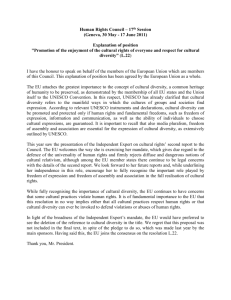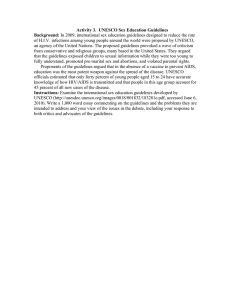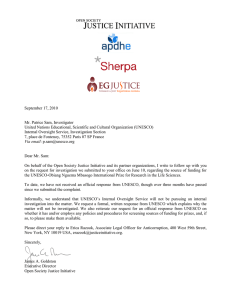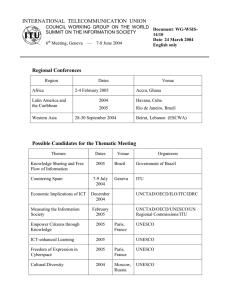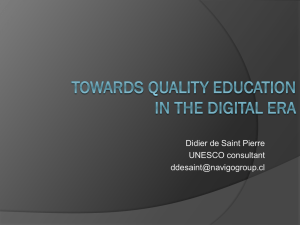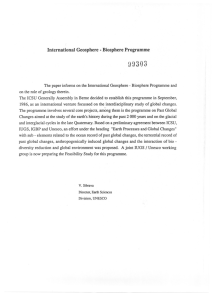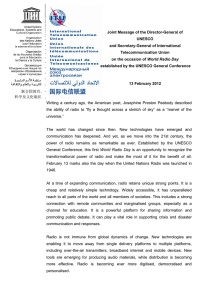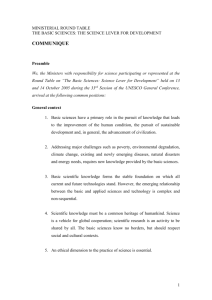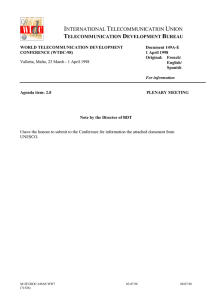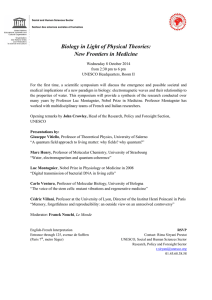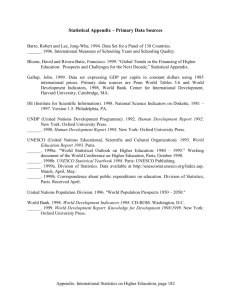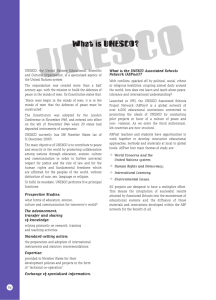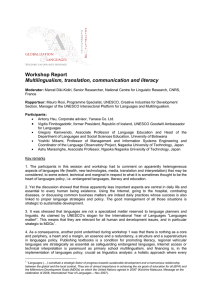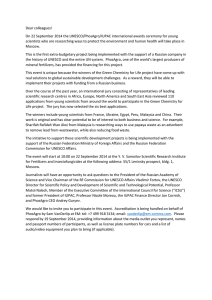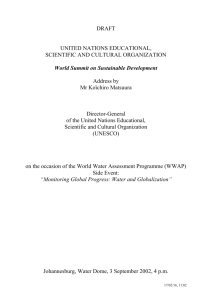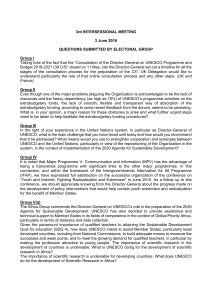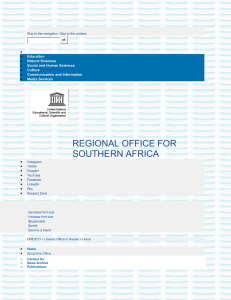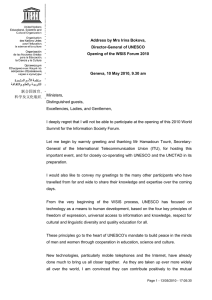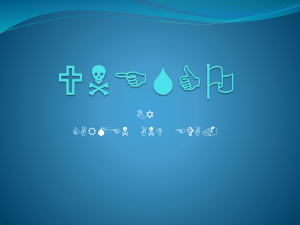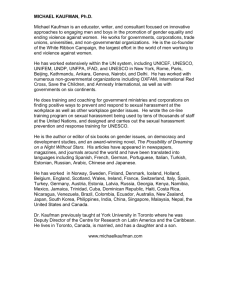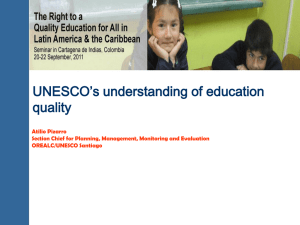Summary of contents Since 2011, the United States do not pay the
advertisement
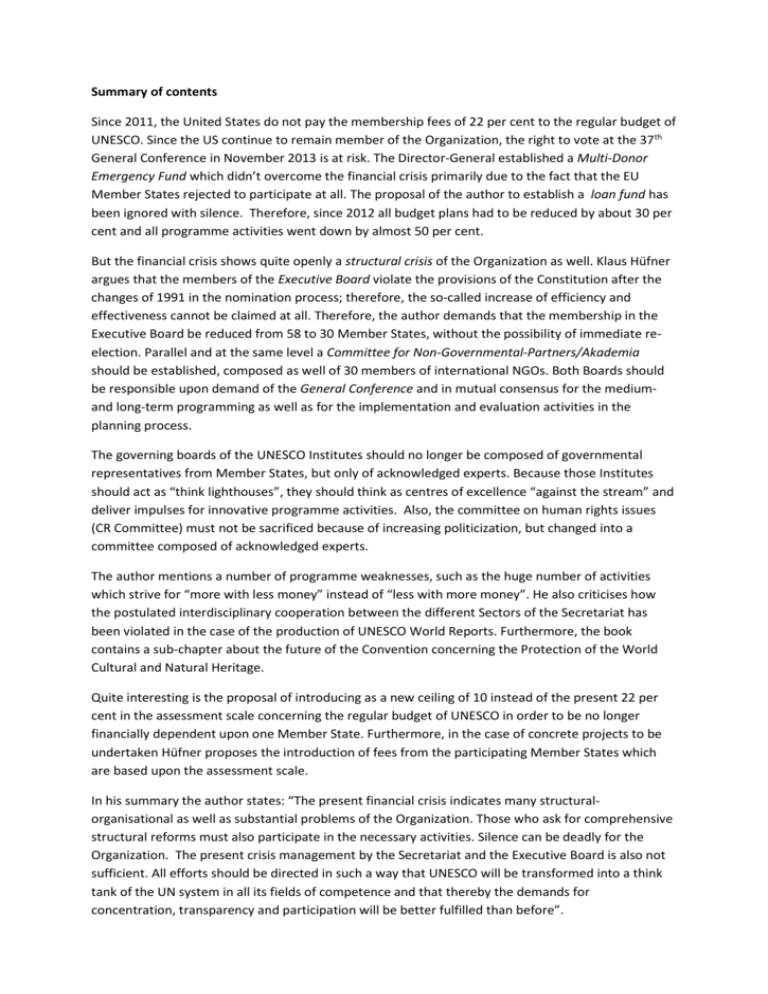
Summary of contents Since 2011, the United States do not pay the membership fees of 22 per cent to the regular budget of UNESCO. Since the US continue to remain member of the Organization, the right to vote at the 37th General Conference in November 2013 is at risk. The Director-General established a Multi-Donor Emergency Fund which didn’t overcome the financial crisis primarily due to the fact that the EU Member States rejected to participate at all. The proposal of the author to establish a loan fund has been ignored with silence. Therefore, since 2012 all budget plans had to be reduced by about 30 per cent and all programme activities went down by almost 50 per cent. But the financial crisis shows quite openly a structural crisis of the Organization as well. Klaus Hüfner argues that the members of the Executive Board violate the provisions of the Constitution after the changes of 1991 in the nomination process; therefore, the so-called increase of efficiency and effectiveness cannot be claimed at all. Therefore, the author demands that the membership in the Executive Board be reduced from 58 to 30 Member States, without the possibility of immediate reelection. Parallel and at the same level a Committee for Non-Governmental-Partners/Akademia should be established, composed as well of 30 members of international NGOs. Both Boards should be responsible upon demand of the General Conference and in mutual consensus for the mediumand long-term programming as well as for the implementation and evaluation activities in the planning process. The governing boards of the UNESCO Institutes should no longer be composed of governmental representatives from Member States, but only of acknowledged experts. Because those Institutes should act as “think lighthouses”, they should think as centres of excellence “against the stream” and deliver impulses for innovative programme activities. Also, the committee on human rights issues (CR Committee) must not be sacrificed because of increasing politicization, but changed into a committee composed of acknowledged experts. The author mentions a number of programme weaknesses, such as the huge number of activities which strive for “more with less money” instead of “less with more money”. He also criticises how the postulated interdisciplinary cooperation between the different Sectors of the Secretariat has been violated in the case of the production of UNESCO World Reports. Furthermore, the book contains a sub-chapter about the future of the Convention concerning the Protection of the World Cultural and Natural Heritage. Quite interesting is the proposal of introducing as a new ceiling of 10 instead of the present 22 per cent in the assessment scale concerning the regular budget of UNESCO in order to be no longer financially dependent upon one Member State. Furthermore, in the case of concrete projects to be undertaken Hüfner proposes the introduction of fees from the participating Member States which are based upon the assessment scale. In his summary the author states: “The present financial crisis indicates many structuralorganisational as well as substantial problems of the Organization. Those who ask for comprehensive structural reforms must also participate in the necessary activities. Silence can be deadly for the Organization. The present crisis management by the Secretariat and the Executive Board is also not sufficient. All efforts should be directed in such a way that UNESCO will be transformed into a think tank of the UN system in all its fields of competence and that thereby the demands for concentration, transparency and participation will be better fulfilled than before”.
